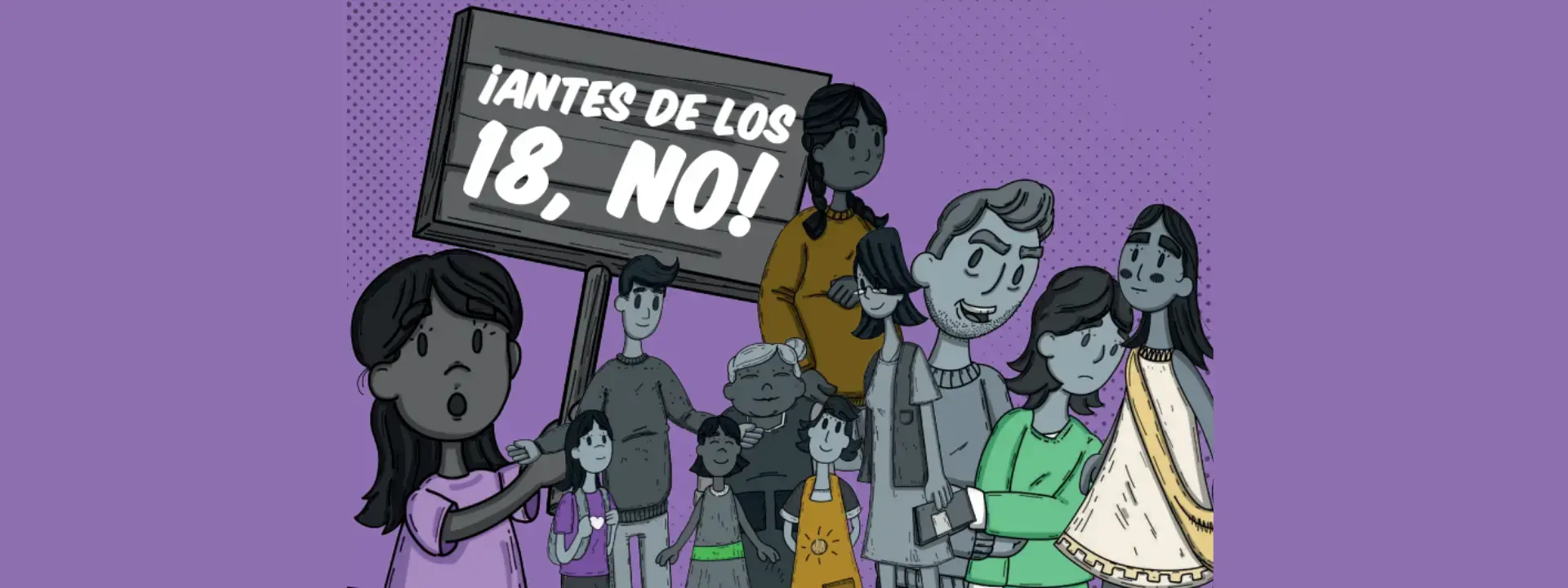1 IN 4 GIRLS IN LATIN AMERICA AND THE CARIBBEAN MARRIES OR ENTERS AN EARLY UNION BEFORE THE AGE OF 18. Latin America and the Caribbean is the only region in the world where child marriage has not decreased in the last 25 years and ranks second globally in the number of adolescent pregnancies.
An alliance for the rights of girls and adolescents: UNICEF, UN Women, and UNFPA
----------------------------------------------
THE PROBLEM
1 IN 4 GIRLS IN LATIN AMERICA AND THE CARIBBEAN MARRIES OR ENTERS AN EARLY UNION BEFORE THE AGE OF 18.
Child marriage and early unions are a complex phenomenon linked to gender inequalities, poverty, school dropout, violence, and adolescent pregnancy. Child marriage endangers girls' lives and health, in addition to limiting their future prospects.
Latin America and the Caribbean is the only region in the world where child marriage has not decreased in the last 25 years and ranks second globally in the number of adolescent pregnancies.
Without accelerated actions and investments, Latin America and the Caribbean will have the second-highest rate of child marriage and early unions by 2030.

SOLUTION
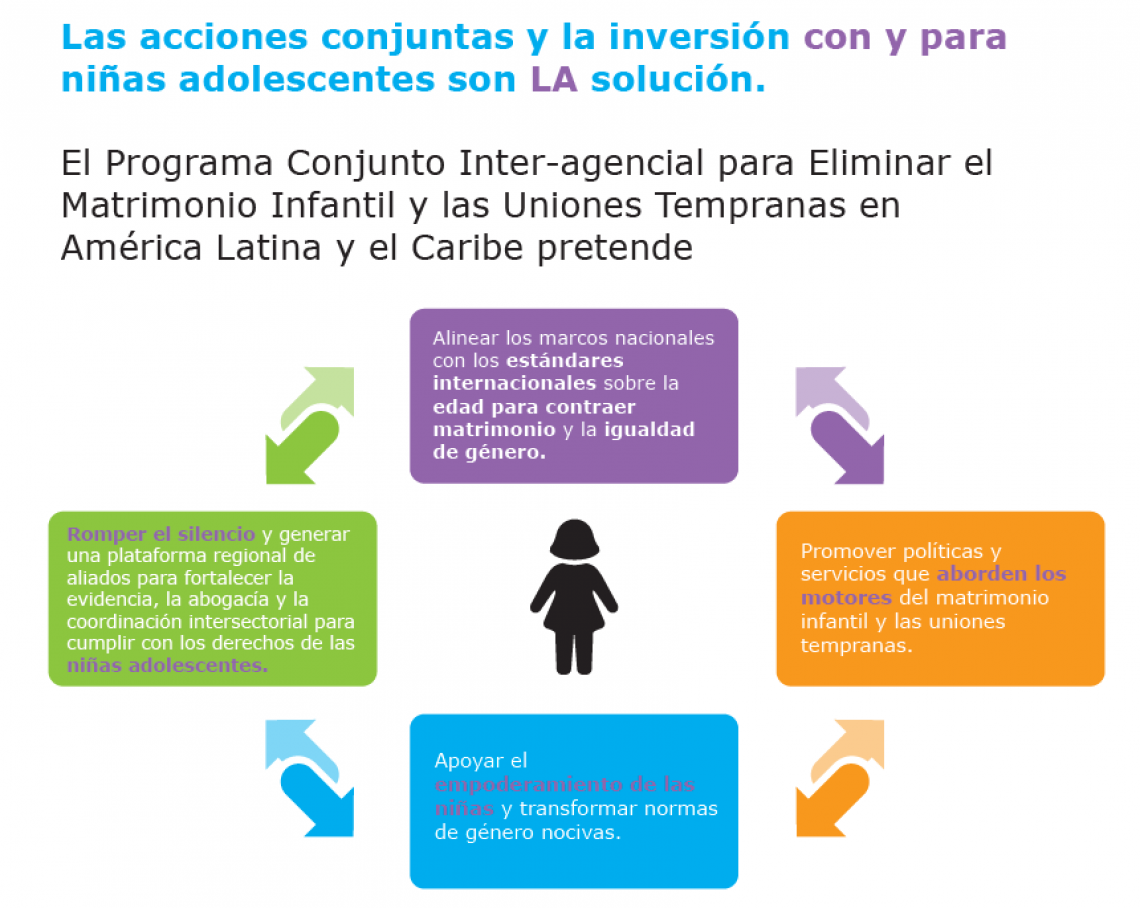
Since 2017, UN Women, UNFPA, and UNICEF have been jointly implementing a Regional Program in Latin America and the Caribbean to ensure that girls today, who will be adults in 2030, have opportunities for their full development.
The objective of this initiative is to promote regional and national actions to prevent child marriage and early unions by expanding options for girls and promoting gender equality through education, protection, and social inclusion measures, as well as access to key public services. The program also promotes the design of policies, programs, and legislation aimed at ending the practice.
The initiative supports the needs of married girls and emphasizes reaching the most vulnerable girls, including those from indigenous, rural, and low-income households.
The first phase includes five countries: Colombia, El Salvador, Guatemala, Mexico, and the Dominican Republic. Other countries will benefit from regional activities and are expected to gradually join the initiative.
FIELD INITIATIVES
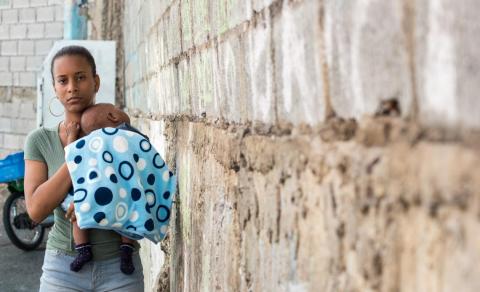
- In 2017, El Salvador and Guatemala celebrated the elimination of all legal exceptions to the minimum age of marriage (18 years) at the national level.
- Colombia's National Development Plan (2018-2022) includes an objective dedicated to eliminating child marriage and early unions.
- To support legal reforms to the age of marriage in the Dominican Republic, a joint Twitter campaign by UN agencies and partners was the trending topic on April 11, 2018, coinciding with parliamentary debates on child marriage and early unions, reaching over seven million people.
- In Belize, an intersectoral national roadmap on child marriage and early unions is being prepared, which includes key actions within sectors such as health, education, and justice. (See video)
- In the Dominican Republic, girls' clubs have been launched, and national youth leadership camps have been organized to develop leadership skills, foster girls' empowerment, and build networks among participants.
- Also in the Dominican Republic, at the initiative of UNICEF, the innovative telenovela "La Peor Novela" (The Worst Telenovela) was rebroadcast to challenge social tolerance and perceptions about child marriage. The campaign won three awards at the 2018 Cannes Lions Festival.
Reference Page: https://www.unfpa.org/es/matrimonio-infantil
----------------------------------------------------------------------------------------------------------------------------------------------------------------------
Child Marriage and Early Unions During the COVID-19 Coronavirus Pandemic
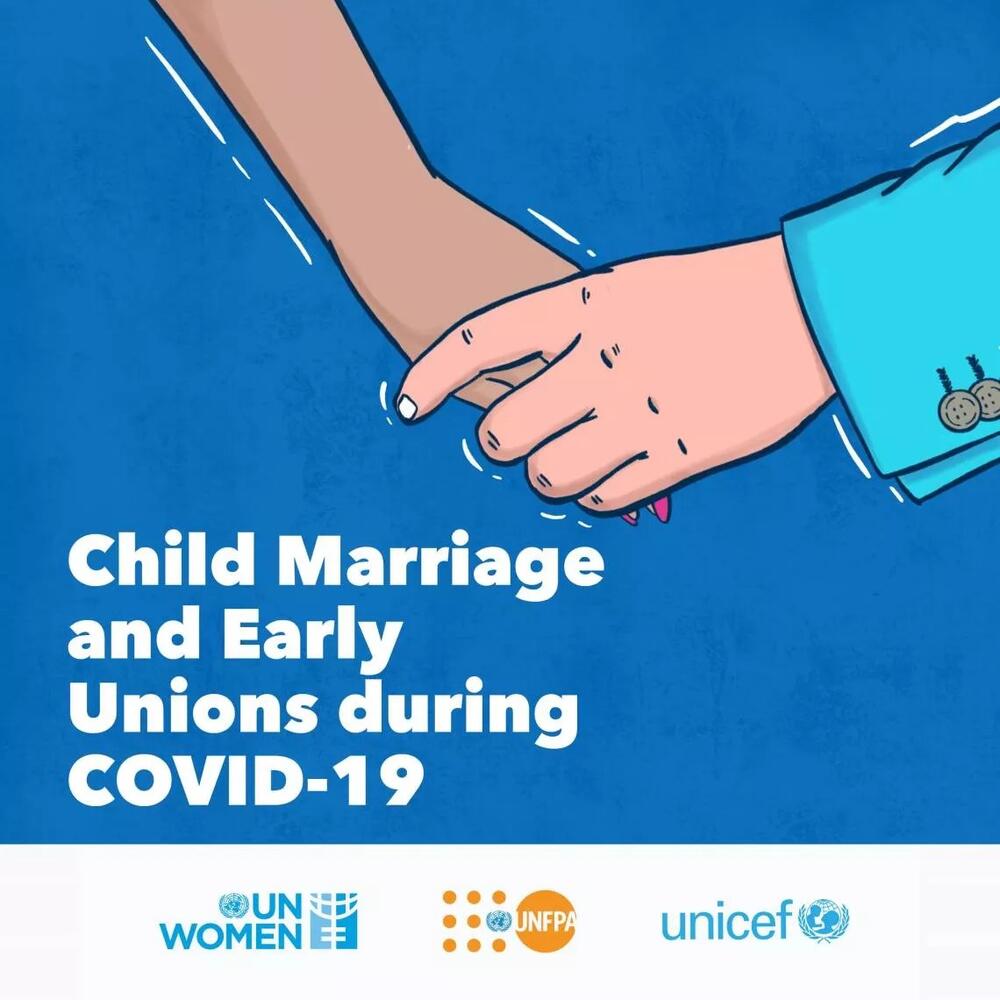
© UNICEF LACRO/2020
Child Marriage and Early Unions are complex phenomena linked to gender inequalities, violence, poverty, school dropout, adolescent pregnancy, and inadequate legal frameworks and policies that rob girls and adolescents of opportunities for their present and future.
During COVID-19
The Coronavirus pandemic has severely impacted family economies and has led to an increase in poverty. This may lead families to consider marrying off their daughters as an economic relief. 1 in 5 girls/adolescents in Latin America and the Caribbean marries a man at least 10 years older.
Download the technical note here
Spanish version
Staying in school and completing secondary education are the best strategies to prevent child marriage and early unions. With school closures during COVID-19, there is a risk that unions will increase. When schools reopen, fewer girls and adolescents will return to school.
During the pandemic, economic dependence, family isolation, and domestic violence make it more difficult for married or united girls and adolescents to access health or protection services.
Child marriage and early unions may increase among migrant and refugee girls to alleviate their poverty or to obtain necessary documentation for a destination country. In the context of COVID-19, this trend may increase if national services do not create specific measures for migrant or undocumented populations. During COVID-19, access to sexual and reproductive health may decrease due to the reduction of available services and confinement measures.
Married or united girls tend to have their first child before the age of 18, with short intervals between births. Adolescent mothers and pregnant girls less frequently attend sexual and reproductive health services due to the revictimization and discrimination they experience. Frontline workers should not judge adolescent mothers – they do not know the circumstances of their pregnancies. Adolescents in unions are likely to face greater intimate partner violence but may not seek help due to discrimination for being in a union.
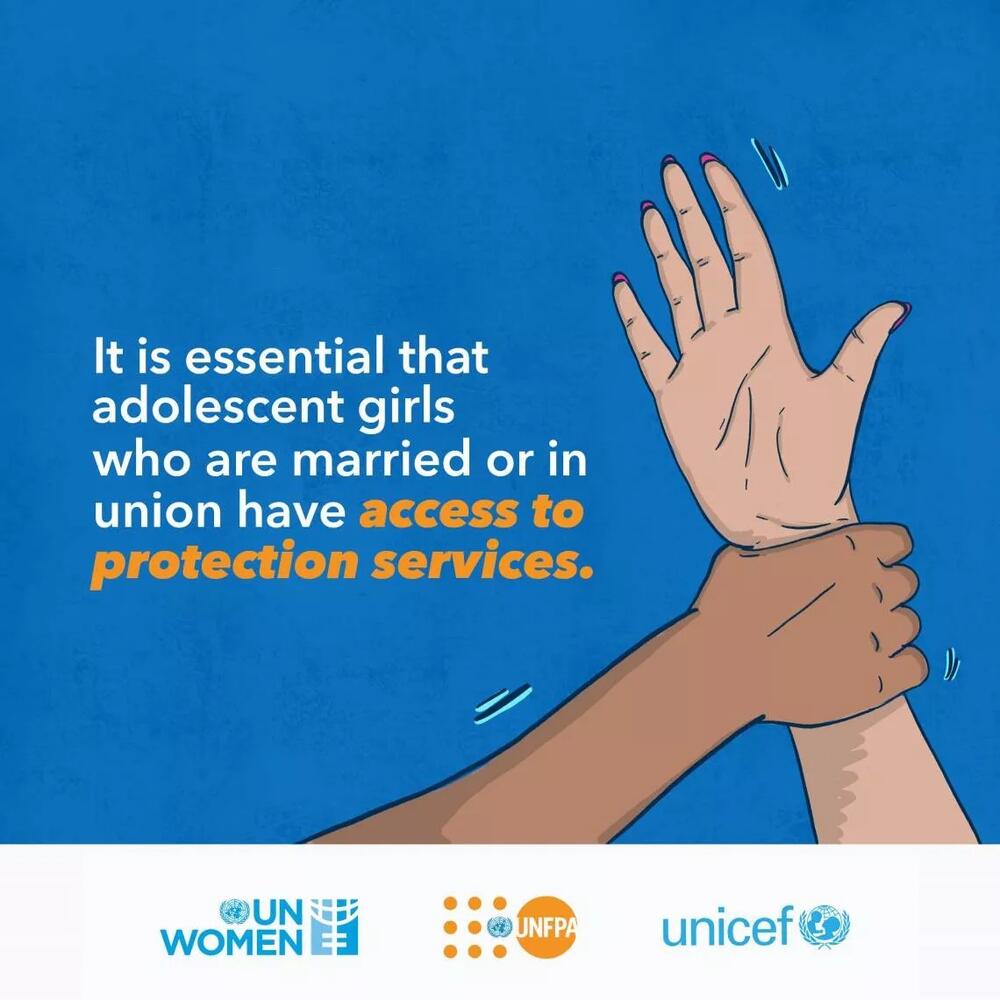
© UNICEF LACRO/2020
Download the technical note here
Spanish version
--------------------------------------------------------------------------------------------------------------------------------------------------------------------------------------------------------
RESOURCES
A Profile of Child Marriage and Early Unions in Latin America and the Caribbean
Inter-agency Regional Program UN Women, UNFPA, and UNICEF
Infographic folder of the interagency program:
Download brochure (available in Spanish and English).
UNICEF-UNFPA Global Programme to End Child Marriage
See progress and updates of the Global Programme
Report:
Executive Summary Santo Domingo (available in English, Spanish, and as a poster).
Colombia:
From child marriage and early unions to pregnancy in childhood and adolescence, FEWER rights for girls
Child marriage and early unions, a story without a happy ending
Dominican Republic:
Watch trailer of La Peor Novela
Study Plan International and UNFPA:
PARTNERS
Co-implementing sister agencies:
Global and regional partners and allies with actions to end child marriage and early unions in Latin America and the Caribbean:

